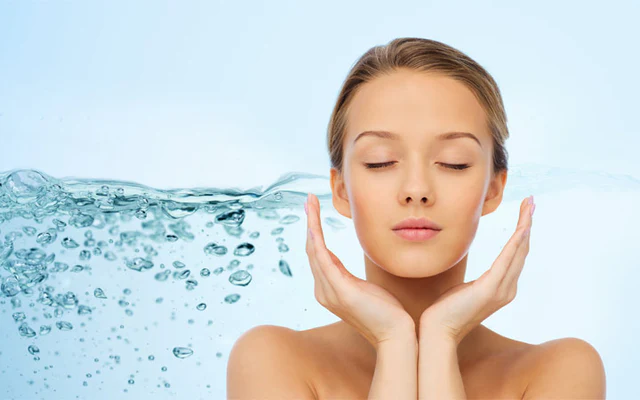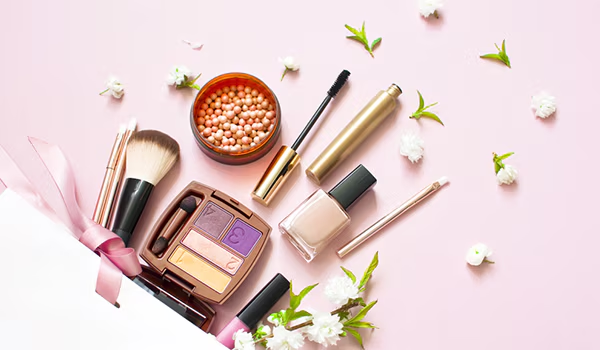Our skin is the body’s largest organ, and it plays a vital role in protecting us from external elements. However, to function optimally, skin needs proper hydration. Without enough moisture, your skin can become dry, flaky, and prone to premature aging. Hydration is not just about drinking water but also about maintaining moisture levels in the skin through proper care. In this article, we will explore the importance of hydration for skin health and how it can lead to glowing, youthful-looking skin.
The Link Between Hydration and Skin Health
Hydration is essential for skin health. When your skin is well-hydrated, it looks plump, smooth, and youthful. Dehydrated skin, on the other hand, can appear dull, rough, and prone to wrinkles. Water plays a crucial role in skin cell renewal and maintaining elasticity. Proper hydration ensures that your skin’s barrier remains intact, protecting it from harmful pollutants and UV rays.
How Does Hydration Benefit Skin Health?
Water helps in flushing out toxins, keeping your skin clear and healthy. When your skin cells are hydrated, they can function more efficiently, promoting better overall skin health. Here are some key benefits:
-
- Moisturizes Skin Naturally
Hydration keeps your skin soft and supple. Drinking enough water ensures that moisture is distributed throughout the skin, reducing dryness and itchiness.
- Moisturizes Skin Naturally
-
- Improves Skin Elasticity
Proper hydration helps maintain the elasticity of your skin. This is crucial for preventing sagging and wrinkles, especially as you age.
- Improves Skin Elasticity
-
- Promotes Skin Healing
Water supports skin cell regeneration. When your skin is hydrated, it can repair itself faster after damage, such as cuts, sunburn, or acne breakouts.
- Promotes Skin Healing
-
- Reduces Premature Aging
Dehydrated skin is more likely to show signs of aging, such as fine lines and wrinkles. By staying hydrated, you can slow down the aging process and keep your skin looking youthful.
- Reduces Premature Aging
Signs of Dehydrated Skin
If your skin is not getting enough hydration, it will show visible signs. Dehydrated skin often feels tight, especially after washing. It may also look dull and show more noticeable lines. Common signs include:
-
- Dry patches
-
- Flaky or rough texture
-
- Redness and irritation
-
- Dark circles under the eyes
If you notice these signs, it’s time to focus on improving your hydration levels for better skin health.
Best Practices to Improve Skin Health Through Hydration
Maintaining skin health through hydration involves both internal and external practices. Here are some effective ways to keep your skin hydrated:
-
- Drink Plenty of Water
The most obvious way to hydrate your skin is by drinking water. Aim for at least 8 glasses of water daily to support your skin health.
- Drink Plenty of Water
-
- Use Hydrating Skincare Products
Applying hydrating serums, moisturizers, and masks can lock in moisture and improve your skin’s hydration levels. Look for ingredients like hyaluronic acid, glycerin, and aloe vera, which attract and retain water in the skin.
- Use Hydrating Skincare Products
-
- Avoid Overwashing
Washing your face too often can strip it of natural oils and moisture. Stick to washing twice a day and use a gentle, hydrating cleanser to maintain your skin’s natural barrier.
- Avoid Overwashing
-
- Use a Humidifier
If you live in a dry climate or spend a lot of time in air-conditioned environments, a humidifier can add moisture to the air, preventing your skin from becoming dry.
- Use a Humidifier
Foods That Boost Skin Health
While drinking water is essential, you can also hydrate your skin by eating water-rich foods. Incorporating fruits and vegetables like cucumbers, watermelon, and oranges into your diet helps boost hydration and skin health. These foods are packed with vitamins and minerals that nourish the skin from within.
Common Myths About Hydration and Skin Health
Many people believe that only drinking water is enough for skin health. While staying hydrated is important, your skin also needs topical hydration and the right skincare routine. Another common myth is that oily skin doesn’t need hydration. In reality, all skin types, including oily skin, require proper moisture to stay healthy.
Conclusion
In conclusion, hydration plays an essential role in maintaining skin health. Drinking enough water, using hydrating products, and eating a balanced diet are all crucial steps to ensure your skin stays healthy and radiant. Hydrated skin is less likely to develop wrinkles, redness, and other skin concerns. Focus on staying hydrated every day to protect and improve your skin health.
By making hydration a priority, you can enjoy clear, glowing, and youthful-looking skin for years to come.



